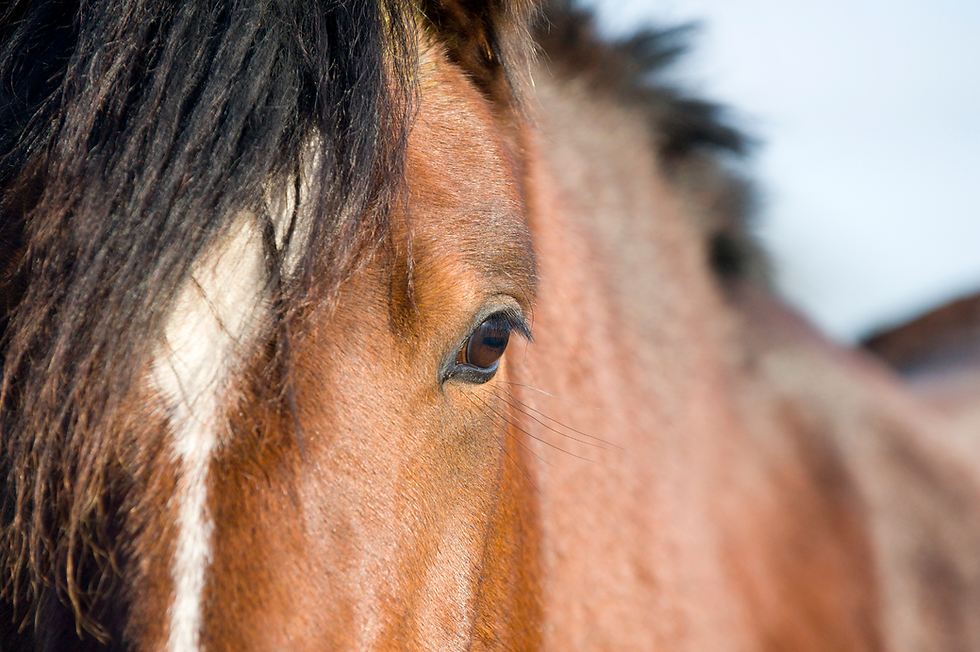Equine West Nile Virus: Understanding the Threat and Ensuring Equine Health
- First Choice Equine

- Jul 13, 2023
- 2 min read

Equine health is of paramount importance to horse owners and enthusiasts around the world. One of the significant threats that horses face is the West Nile Virus (WNV). This viral infection can have severe consequences for equines, including neurological damage and even death. In this blog, we will delve into the intricacies of Equine West Nile Virus, discussing its origins, transmission, symptoms, diagnosis, prevention, and treatment. By understanding this threat and taking appropriate measures, we can ensure the well-being and longevity of our beloved equine companions.
Understanding West Nile Virus:
The West Nile Virus is a mosquito-borne virus that affects humans, birds, and horses. It was first identified in Uganda in 1937 and later spread to other parts of the world. The virus primarily cycles between mosquitoes and birds, with horses and humans considered as incidental hosts. When infected mosquitoes bite horses, they can transmit the virus, leading to equine WNV.
Transmission and Lifecycle:
The transmission cycle of West Nile Virus involves various players. Mosquitoes, particularly the Culex species, act as vectors by feeding on infected birds and then transmitting the virus to other animals, including horses. Once the virus enters the horse's bloodstream, it can multiply and invade the central nervous system, leading to neurological complications.
Symptoms and Diagnosis:
Equines infected with West Nile Virus may exhibit a range of symptoms. These can include fever, loss of appetite, depression, muscle twitching, impaired coordination, weakness, and even paralysis. In severe cases, horses may experience seizures or become comatose. Veterinarians can diagnose WNV through blood tests, examining cerebrospinal fluid, and ruling out other possible causes of neurological symptoms.
Understanding Equine West Nile Virus: A Threat to Equine Health
Prevention and Control:
Prevention is crucial in safeguarding horses from West Nile Virus. Implementing preventive measures can significantly reduce the risk of infection. Here are some key strategies:
a) Vaccination:
Vaccinating horses against West Nile Virus is an effective preventive measure. Consult with your veterinarian to ensure your horse is up to date with its vaccinations.
b) Mosquito Control:
Minimize mosquito breeding sites by eliminating stagnant water sources and using mosquito repellents or protective gear during peak mosquito activity times.
c) Housing and Environment:
Implementing appropriate stable management practices, such as installing screens on windows and using fans to deter mosquitoes, can provide additional protection.
d) Surveillance:
Reporting dead birds to local authorities can aid in tracking the presence of the virus in your area.
Treatment and Management: Unfortunately, there is no specific treatment for West Nile Virus in horses. Veterinarians focus on providing supportive care to manage symptoms and aid in the horse's recovery. This may include anti-inflammatory medications, intravenous fluids, and nursing care to maintain the horse's overall well-being during the recovery process.
Equine West Nile Virus poses a significant threat to the health and well-being of horses worldwide. Understanding the virus's transmission, recognizing the symptoms, and implementing preventive measures are crucial steps in ensuring equine health. Vaccination, mosquito control, and appropriate stable management practices play pivotal roles in minimizing the risk of infection. By staying vigilant and proactive, horse owners and enthusiasts can contribute to the overall welfare of their beloved equine companions, safeguarding them against the dangers of West Nile Virus.
#EquineWestNileVirus #Threat #Equinehealth #Viralinfection #Neurologicaldamage #Mosquito-borne #Transmission #Symptoms #Diagnosis #Prevention #Treatment #Vaccination #Mosquitocontrol #Stablemanagement #Supportivecare #Veterinarycare #Surveillance #Horseowners #Well-being #Safeguarding
%20(1).png)



Comments